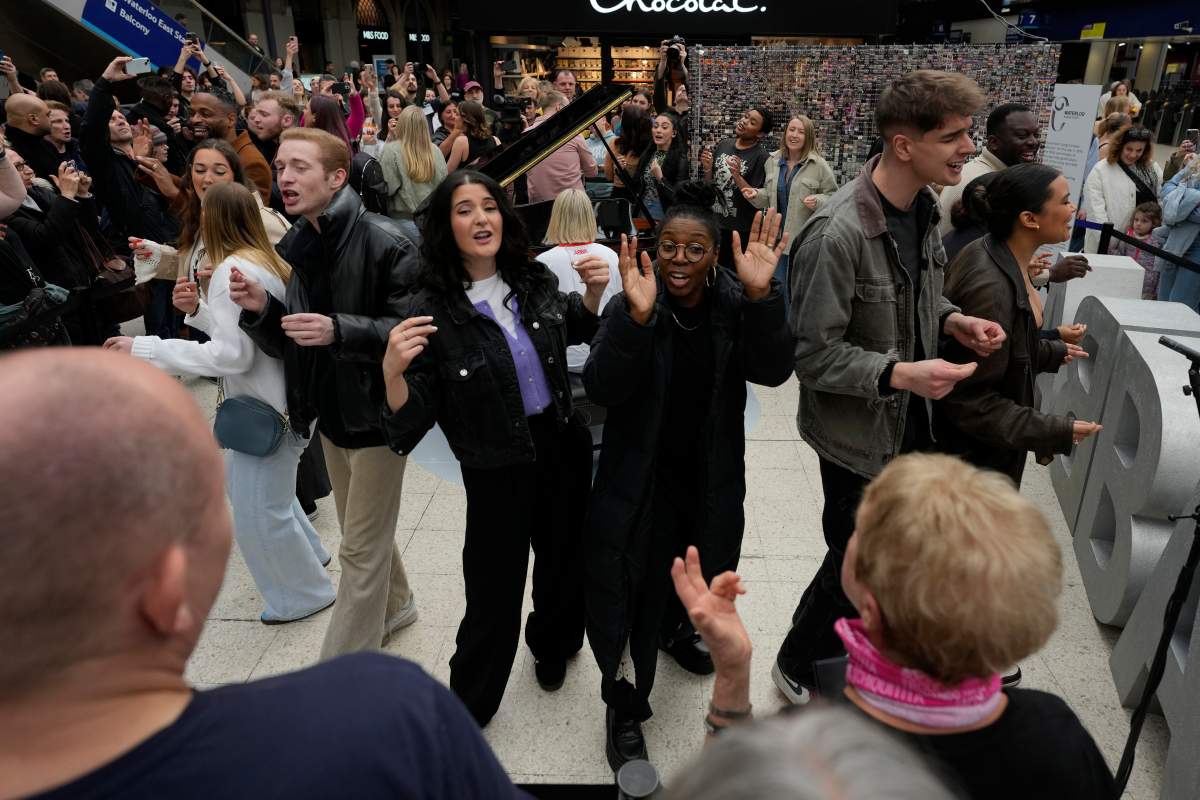It’s 50 years since ABBA won a major battle with “Waterloo.”

A half-century ago on Saturday, the Swedish quartet triumphed at the 1974 Eurovision Song Contest with the peppy love song, which opens: “My my, at Waterloo, Napoleon did surrender, and I have met my destiny in quite a similar way.”
The song rang out again Saturday at London’s Waterloo railway station — also named after the 1815 battle that dealt defeat to the French leader — where a choir belted out a rendition for commuters.
In the English coastal town of Brighton, where the 1974 competition was held, fans were staging a flashmob dance and silent ABBA disco to mark the anniversary.
Eurovision victory turned ABBA into a pop juggernaut, by far the most successful band to win the pan-continental music contest, which will hold its 68th edition in May in ABBA’s home country, Sweden. The Eurovision final will take place May 11 in Malmö, after Swedish singer Loreen won last year’s competition with “Tattoo.”
ABBA’s melodic disco pop sold hundreds of millions of records worldwide. The stage musical “Mamma Mia!” based on its songs is 25 years old and spawned two movies.

Get daily National news
The band members have not performed together live for four decades, but released a comeback album, “Voyage,” in 2021. Every day, fans attend a concert by digital “ABBA-tars” at the hit show “Abba Voyage,” which opened in London in 2022.
In a thank-you message to fans on Saturday, the four band members said it was “slightly dizzying and deeply humbling” to know that their songs had been passed down the generations and “still resonate around the world.”
“Music you discover and learn to love when you grow up or even later in life has a way of staying with you forever,” said Agnetha Faltskog, Björn Ulvaeus, Benny Andersson and Anni-Frid Lyngstad. “We share that experience with you and to know that our music has become a constant in your lives is a wonderful thing.”
A tribute concert titled “A party for ABBA” was set to take place in Stockholm on Saturday evening featuring prominent Swedish artists, a 21-person band and a large choir. Organizers said it was a salute to a band that changed the Nordic country’s music scene “forever.”
Swedish public broadcaster SVT, which planned to broadcast the concert live on television and on its streaming service, said “April 6, 1974 is considered by some to be Sweden’s national music day.”











Comments